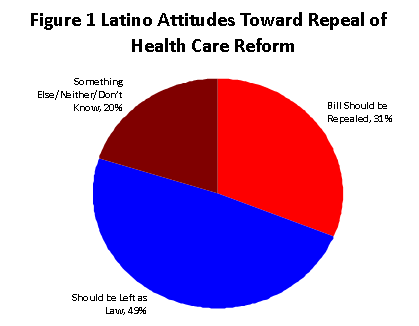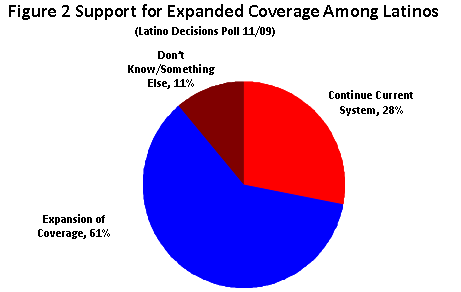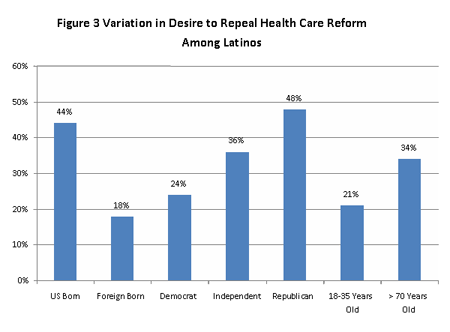The federal health care reform debates captured the nation’s attention during President Obama’s first year in office. Despite tremendous financial and political obstacles, on March 23, 2010 President Obama and the democratically controlled Congress passed the Affordable Care Act, legislation that will expand access to health coverage within the U.S. health care system. President Obama and fellow Democrats did not have much time to celebrate their historic policy victory however, as Republican candidates rode a wave of voter frustration with the economy and the federal government itself to take control of the house in the 2010 election. The newly installed Republican- majority House of Representatives made the Affordable Care Act their primary target, wasting little time before passing a symbolic repeal of President Obama’s signature domestic policy. Although Republican efforts to repeal this law were stalled quickly in the democratically controlled Senate, this set the stage for a more long-term policy battle over the future of our nation’s health care policy.

As this debate heats up in Washington, public opinion polls suggest efforts to criticize the law are gaining momentum and moving public opinion. For example, a Gallup poll from January indicated that 46% of Americans wanted their congressperson to vote to repeal the health care law, compared to 40% who wanted it to stand. This trends is consistent with other national polls conducted recently which consistently show that Americans are divided in their attitudes toward the Affordable Care Act. Yet very little has been reported by the media on Latino opinion of the Affordable Care Act, or it’s possible repeal. This is an important limitation, as Latinos have the lowest rates of access to health care, and thus the most to gain or lose with changes to national health care policy.
The February 2011 impreMedia-Latino Decisions tracking poll provides the opportunity to explore how Latinos view this issue. As reflected in Figure 1 below, Latino support for maintaining the law remains higher than the general public, as 49% of the sample report that the Affordable Care Act “should be left as law” compared to 31% who believe that the “bill should be repealed”. Thus, compared to the general public at large, Latinos demonstrate a much lower preference for repeal (31% compared to 46% in Gallup). However Latino support for Obama’s health care plan has dipped over time. At first glance, when we review a figure (see figure 2) used in a report based on an impreMedia-Latino Decisions survey from November of 2009, it appears that Latino attitudes toward this policy have been surprisingly stable over time. Specifically, just before passage of the Affordable Care Act 28% of Latinos supported maintaining the current health care system relative to expansion based reform, very similar to the 31% in the more recent poll who support repeal. Although this stability and the higher support for keeping the law among Latinos relative to repeal are positive trends for President Obama’s administration, there is some reason for worry as well.
When we compare the “don’t know/something else” categories across the two surveys we see that there has been nearly a ten percent increase during the intense Congressional debates. Given the stability among those not favorable toward the Affordable Care Act, we can deduce that this surge in Latinos who are unsure of their preferences has come at the cost of those favorable to the law-note that 61% of Latinos supported reform in Figure 3. There is further evidence for this notion when we recall that close to 75% of Latinos in November, 2009 and March, 2010 Latino Decisions polls felt that it was “extremely” or “very” important to pass a health care bill prior to the 2010 elections. This prior sense of urgency seems to have lost some of its momentum, as less than half of Latinos today support keeping the law. This may be a window of opportunity for Republicans eager to find support from the public to dismantle the law, and consequently to use this policy as a wedge issue to garner electoral support for Republican candidates in 2012.
What Explains this Attitude Shift?
It is useful to explore variation in support for repeal among the Latino electorate, which is summarized in Table 3 above. For example, there is a sizable 26% gap among Latinos based on nativity, with US-born Latinos having much higher preference for repeal. This is likely due to the significantly higher rates of foreign-born Latinos lacking health insurance under the current system compared to their native-born counterparts (Pew Hispanic Center/Kaiser Family Foundation, 2002). Age is relevant here as well, with support for keeping the law highest among the youngest cohort of Latinos (18-35) and lowest among Latinos over the age of 70. Not surprisingly, Latino attitudes are marked by partisanship as well, as support for repeal is significantly above the overall mean among Latino Republicans (48%).
It is important however to note that it is not just Latino conservatives who may be less than satisfied with the Affordable Care Act. The RWJF-CHP report from 2009 revealed that a strong majority of Latinos (67%) preferred to have undocumented immigrants included in health care reform, and an even more impressive 74% supported the inclusion of the public option in federal reform. It highly plausible that some of these individuals are wavering on their support for keeping the law in place due to the law not going far enough to reform the old system. This is in line with a recent Pew Research Center survey that shows 35% of the general public supports expanding the current law relative to repeal (37%) and keeping as is (20%).
It is also likely that Latino support for the law has wavered due to a lack of outreach to the Latino community. For example, when we asked respondents who were opposed to health reform back in 2009 to tell us why they were unsupportive, 27% indicated that they needed clarification on how the law would work. More to the point, a large segment (44%) of the 2009 poll felt that the federal government did not take the health care needs of the Latino community into consideration when crafting health care reform. Furthermore, the Democratic Party has not done much to change this perception since the bill was passed. By allowing the Republican Party to take the offensive on the political messaging surrounding the law through the media, Democrats may have lost some of the early traction with Latinos on this issue. The upside for the administration is that greater direct communication to Latinos could easily swing their approval, as our data has consistently shown strong support for the core components of the new law.
Although it appears certain that the entire law will not be repealed, the President has recently signaled his willingness to compromise with Republicans on some aspects of the law. For example, President Obama has indicated that he would support allowing states to opt out of some provisions of the new law earlier than originally required. While recent Latino Decisions postings consistently indicate that the economy and immigration will likely dominate Latino voting behavior in 2012, the eventual outcome of partisan compromises on health care legislation could also have influence on Latino voters. More importantly, given that Latinos have the lowest rates of health insurance coverage in the nation (Cohen and Martinez, 2009) the ability for many Latinos to gain access to care hinges on how hard President Obama and Democrats decide to push to keep the major components of their landmark domestic policy in place in the face of what will likely be tremendous political pressure.



